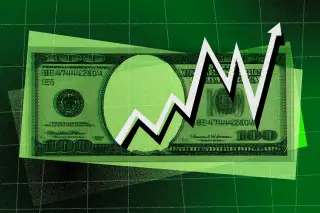Investors Are Building up Their Cash Reserves — Millennials Especially

Cash is still king — at least, that’s what young investors seem to be saying.
A new report from investment company Betterment shows that three-quarters of investors increased or held steady their cash holdings between March 2022 and March 2023, when the survey was conducted. The online survey of 1,200 respondents also found that millennials are the biggest fans of cash.
What the data says
Betterment found that most habits haven’t changed dramatically for investors, from savings to spending to the makeup of their portfolios. That is, except for building up cash reserves.
In addition to finding that 75% of respondents said they have either held onto or increased their cash holdings, Betterment found that this trend tends to differ across the four generations surveyed, with younger investors taking a great interest in cash holdings. Millennials are the biggest cash holders, with 83% holding or adding to their reserves.
Investors have had reason to increase their safety net. Much of 2022 and the first half of 2023 was met with headline after headline about a looming recession.
But recently, experts have been softening on the idea of a prolonged economic downturn, or at least the severity of one if it does come. And earlier this month, we saw the beginning of a new bull market for stocks.
Betterment's report shows that 59% of survey respondents think 2023 will end on a positive note for their finances. Only about 15% of investors hold any negative outlook on the year at all when it comes to their personal finances. As is the case with cash reserves, younger generations tend to have a higher outlook than older generations.
Why are investors saving?
It appears that interest rates are at least in part key to investors' affinity for saving. The survey found 44% of respondents say that high interest rates caused them to increase their savings in the last year as of March.
Additionally, savings accounts have been flexing some fairly high yields, sweetening the deal for investors keeping cash. Many banks are offering high-yield savings accounts and money market accounts with APYs of almost 5%.
Most financial advisors recommend having cash reserves that cover at least three to six months of your expenses. Having an emergency fund is, "a long- term strategy that ensures you’ll have funds to cover unexpected expenses and won’t need to dip into accounts like your retirement fund, which should be a last resort," Nick Holeman, Betterment's director of financial planning, said via the report.
"As investors continue to become more comfortable and optimistic about the future, they’re looking ahead and focusing on ways to protect their financial stability," he adds.
Here's How Much Money Americans Think They Need to Retire Comfortably
Good News for Investors: Bull Markets Usually Last Way Longer Than Bears
The Best CD Rate We’ve Seen in Years Just Arrived: It Pays Over 6% APY